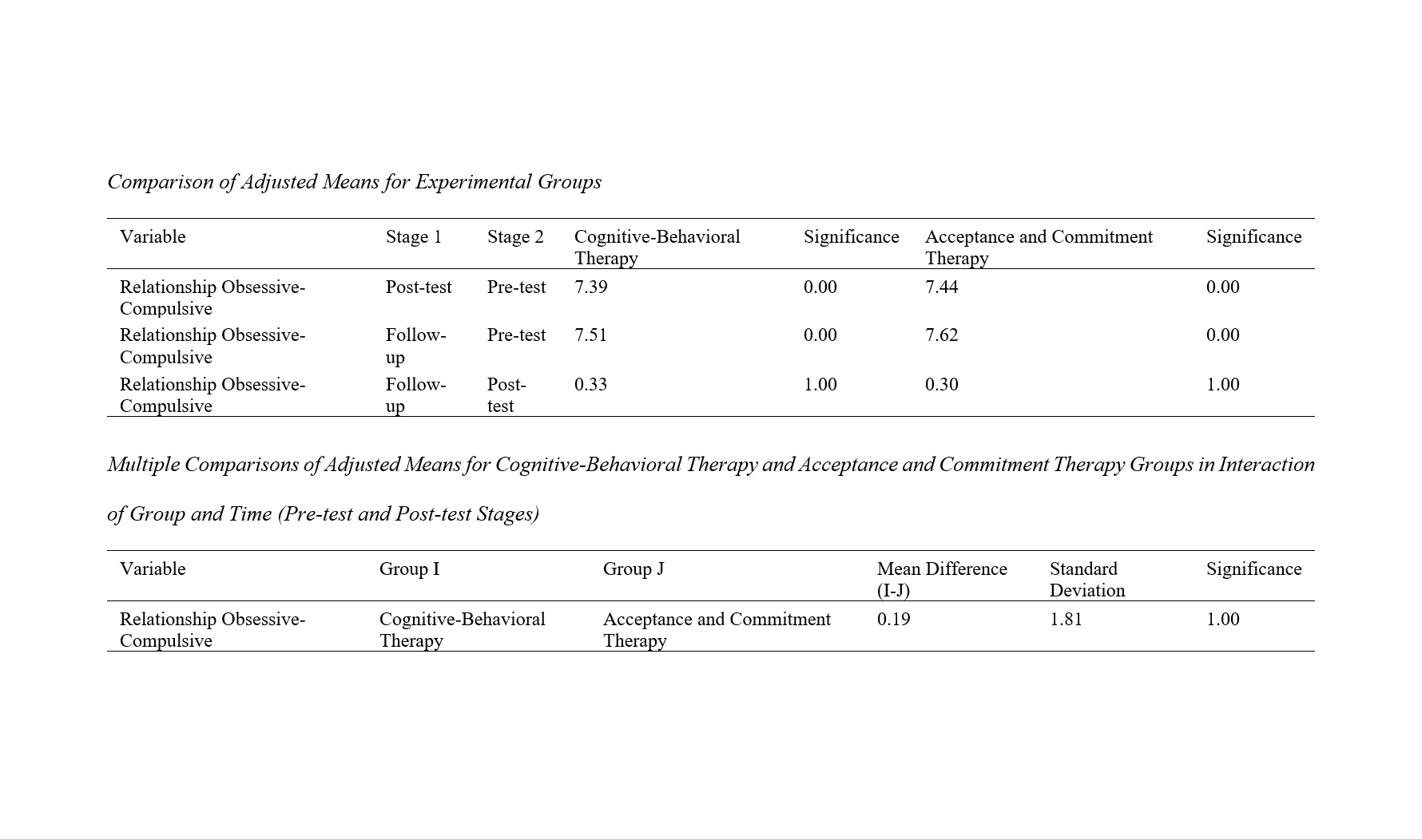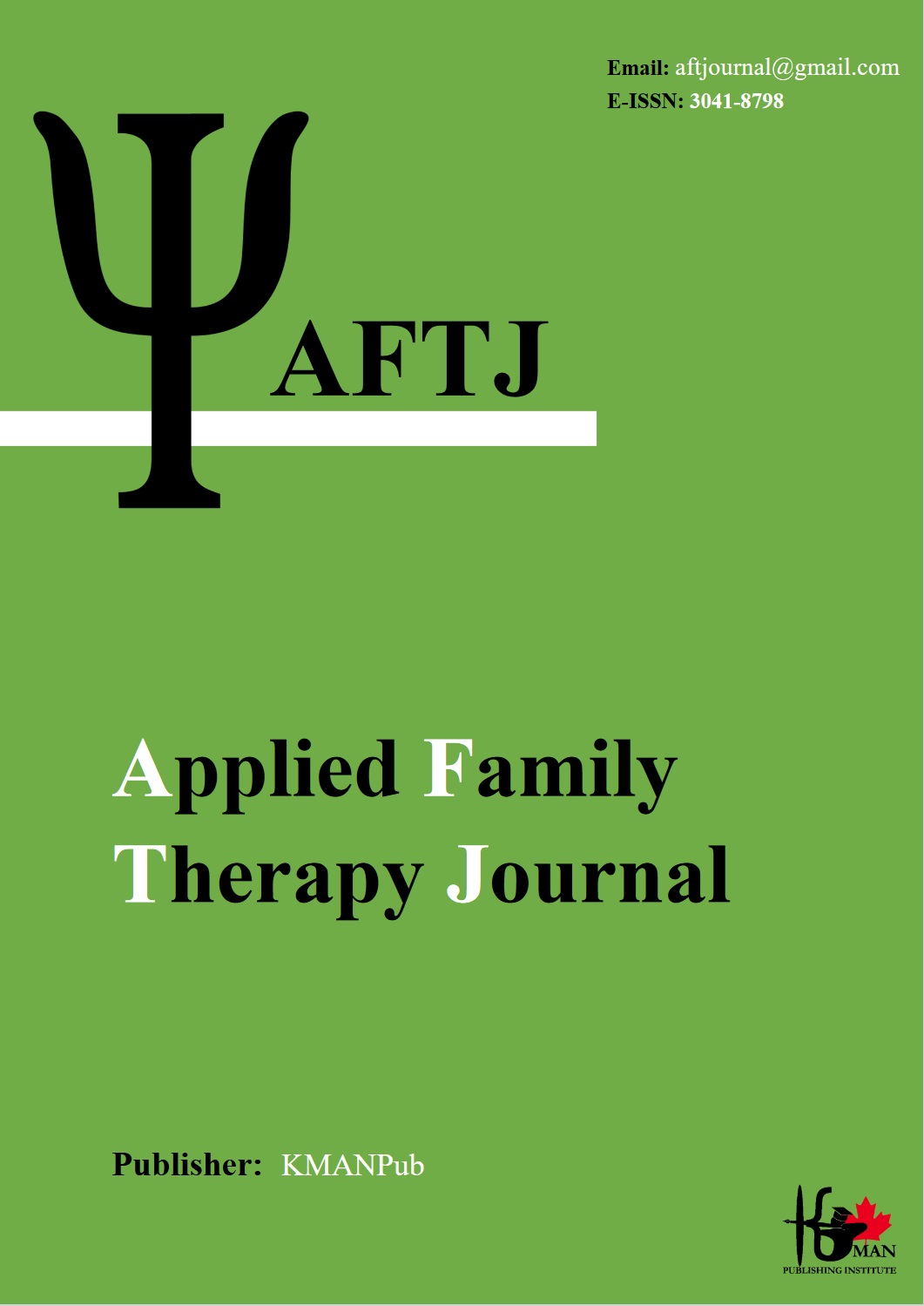Comparing the Effectiveness of Acceptance and Commitment Therapy with Cognitive-Behavioral Therapy on Women's Relationship Obsessive-Compulsive Disorder
Keywords:
Cognitive-behavioral therapy, Acceptance and commitment therapy, Relationship obsessive-compulsive disorder, Women, Health centersAbstract
Objective: The aim of the present study was to compare the effectiveness of cognitive-behavioral therapy (CBT) and acceptance and commitment therapy (ACT) on relationship obsessive-compulsive disorder (ROCD) in women attending health centers.
Methods: The research design was applied in terms of aim and was a quasi-experimental study with a pretest-posttest design, two experimental groups, a control group, and a two-month follow-up period. The statistical population included all women referred to health centers and a private counseling center in Chalous city in 2023. Twenty participants were selected through convenience sampling and randomly assigned to two experimental groups and one control group. To collect data, the Relationship Obsessive-Compulsive Disorder Questionnaire by Doron et al. (2012) was used. For statistical analysis, SPSS-26 software, repeated measures ANOVA, and Bonferroni post hoc test were utilized.
Findings: The results indicated that CBT (F=6.92, p<0.01) and ACT (F=6.97, p<0.01) had a significant impact on ROCD scores over time (p<0.01), suggesting that both interventions significantly reduced ROCD in women attending health centers. A significant difference was found between pretest and posttest scores for ROCD in both approaches (p<0.01), indicating the meaningful effectiveness of these two therapeutic methods. No significant difference was observed between posttest and follow-up scores (p>0.05), indicating the stability of the effects.
Conclusion: Based on the findings, it can be concluded that both CBT and ACT can be used to reduce ROCD in women attending health centers, with no significant difference in the effectiveness of these therapeutic methods.
Downloads

Downloads
Additional Files
Published
Issue
Section
License

This work is licensed under a Creative Commons Attribution-NonCommercial 4.0 International License.


























